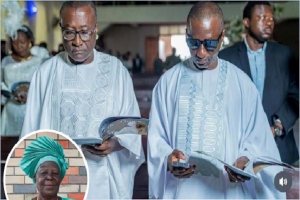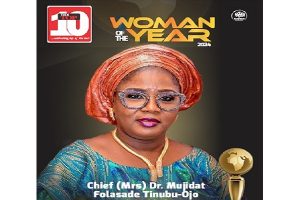A special review of Danbatta’s implementation strategies of the telecommunication industry’s component of the National policy on local content.
Those familiar with the antecedents of Professor Umar Garba Danbatta would not be surprised by President Muhammadu Buhari’s decision to stick with him to drive the implementation of the National Policy for the Promotion of Indigenous Content in the telecom industry.
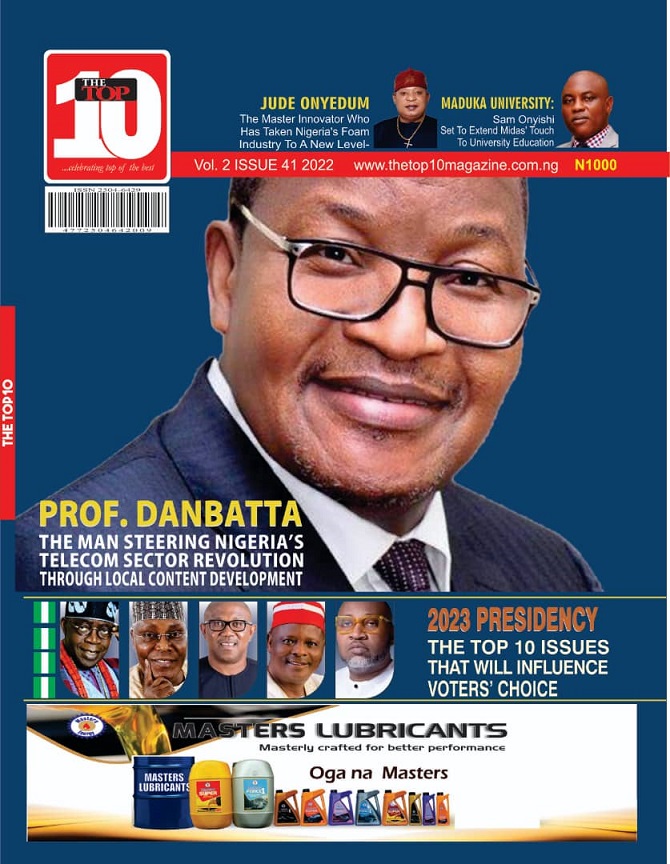
Since his appointment in 2015 as the Executive Vice-Chairman and Chief Executive Officer (EVC/CEO) of the Nigerian Communications Commission (NCC), the Professor of telecommunications engineering has led the industry to attain significant milestones of national and international acclaim.
For instance, Prof Danbata, through effective regulatory regime and various cutting-edge initiatives, has transformed the telecommunications sector into a major contributor to the country’s Gross Domestic Product (GDP) growth, and boosted telecoms investment inflows from $36 billion to over $70 billion since 2015. In the third quarter of 2021 alone, the telecommunication sector contributed 11.94 per cent to the nation’s GDP.
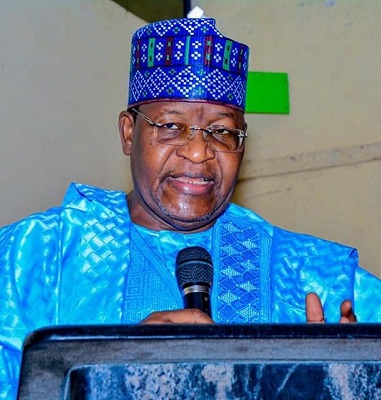
Also, the multiple award-winning professor successfully spearheaded the attainment and surpassing of Nigeria’s national broadband target in 2018 and is currently among those leading the charge for the realization of the new national broadband target of 70% by 2025, after the country achieved and surpassed its earlier national target of 30% penetration in 2018.
These and other achievements may have inspired the President to approve the renewal of Prof. Danbata’s appointment as EVC/CEO of NCC in 2020 for another 5-year term.
Danbata’s reapportionment has effectively put him in charge as the chief driver of the implementation of the telecommunication industry’s component of the National policy on local content which President Buhari launched about a year later in May 2021.
The objective of the new policy is to ensure that Nigerians become active participants in the different sectors of the economy. According to the President, the policy will accelerate the development of the capacity of Nigerians in the management and growth of the country’s economy.
The policy focuses on major areas in the telecoms sector such as equipment manufacturing, software development, compliance, monitoring, licensing, funding, people, and research & development for digital innovation and entrepreneurship.
It specifies a minimum expatriate quota, specifically providing that each expatriate employed by a company must be understudied by two Nigerians and that expatriate quota approvals by the Ministry of Interior be adhered to.
The policy stipulates that the ratio of Nigerians to foreigners (for senior, line, contract and outsourced staff) in the industry is high in absolute terms at 98 to two per cent. However, it noted that the larger operators (especially the mobile network operators) have a healthier balance than smaller licensees and service providers.
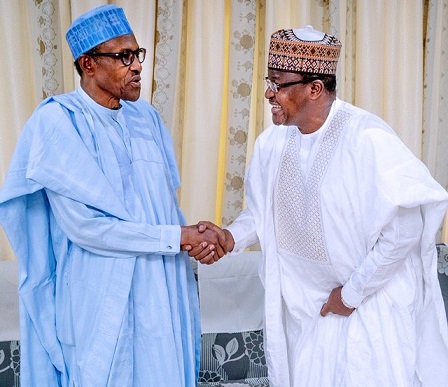
The policy requires that modalities be put in place to ensure that foreign companies are not allowed to trade directly in certain segments of the telecoms markets unless there is a certain percentage of local content.
The policy provides for creation of the Nigeria Office for Developing the Indigenous Telecom Sector (NODITS), to serve as a Special Purpose Vehicle (SPV) under the supervision of the Nigerian Communications Commission (NCC) to stimulate the development of local content in the telecommunications sector.
NODITS is mandated to implement this policy as well as setting strategies, standards, guidelines and frameworks aimed at developing indigenous content in the Nigerian telecommunications sector.
The main functions of NODITS, as provided for in the policy document, include: to support the creation and implementation of guidelines for the development of the indigenous content for the telecommunications sector; stimulate the growth of the sector through a focused, sustainable and incentives-based approach that encourages the active participation of the indigenous telecom operators and liaise with the Office for Indigenous Content Development at NITDA.
Others are building synergy and convergence of digital technologies, facilitating the sourcing of indigenous products, manpower and services across the entire value chain of the telecoms sector and evaluating and endorsing indigenous content plans for operators in the sector.
Shortly after the launch of the policy, Prof. Danbata declared the preparedness of NCC under his leadership to faithfully and thoroughly implement it. He made the declaration during a maiden virtual Policy Implementation Assisted Forum (PIAFo), themed, ‘Facilitating policy implementation to deliver value in the Nigerian telecoms sector.’ He said NCC) was developing a new framework to drive the federal government goal in promoting indigenous content in the country’s telecommunications industry.
“The NCC is vigorously promoting local investment in digital infrastructure and competition in the provision of accessible high speed broadband infrastructure.
“I would like to assure you that the Commission is wholly committed to realising the vision of the President for promoting indigenous content in the telecommunications sector as has been done in the Agricultural and Petroleum sectors to achieve our goals of significant participation, preservation of scarce foreign exchange and improving the lives of Nigerians.
“To ensure effective implementation of these objectives, we are developing a robust compliance monitoring and enforcement framework, leveraging on existing mechanisms.”
One of the first concrete steps which Danbata took were the unveiling of the Commission’s roadmap for the implementation of the policy. It unveiled 72 action points to promote indigenous content in the telecoms sector which it classed into immediate, short term, medium term, and long-term items. These include activities such as the creation of NODITS dedicated to guiding the policy; constitution of local content steering committee and commissioning baseline studies on the level of indigenous content in the Nigerian telecoms industry. The Commission also brought at least 30 stakeholders to the round table to chart ways for the effective implementation of the policy.
Others included the development of regulations, monitoring and enforcement of Key Performance Indices (KPIs) and methodologies; development of implementation guidelines; continuous efforts in research and development (R&D); monitoring, evaluation, and enforcement.
“To ensure the effective implementation of the NPPIC, we have articulated several targets and high impact interventions, which are Specific, Measurable, Attainable, Relevant and Time-based (SMART),” Danbata said at an industry stakeholders’ forum.
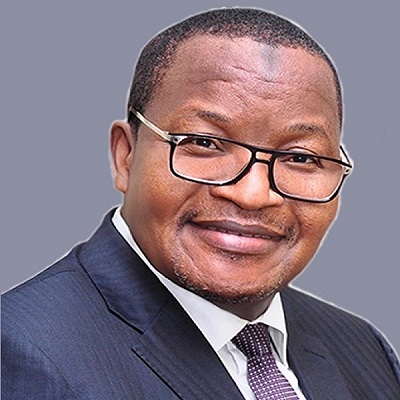
Danbata explained that NODITS “is saddled with the responsibility of implementation of the local content policy as well as the Executive Orders 003 and 005. Relevant portions of the Nigerian National Broadband Plan (NNBP) 2020-2025 as well as the National Digital Economy Policy and Strategy (NDEPS) are also under the purview of this new office called NODITS.”
He said that with the constitution of the NODITS office, the industry should expect new guidelines and regulations bothering on indigenous content, local manufacturing of telecom equipment, outsourcing of services, construction and lease of telecoms ducts, succession planning in the telecoms sector, corporate governance, and corporate social responsibility, as the need arises.
The telecommunications industry stakeholders also used the Forum to bring to NCC’s attention some of the needs and challenges to be addressed in order to achieve a successful implementation of the local content policy. Some of them include the provision of an enabling environment for indigenous telecom companies and service providers to participate in the telecom industry.
The Executive Director, Broad based Communications Limited, Mr. Chidi Ibisi, spoke on the need for the support of local industry players through interventionist funding windows of the Central Bank of Nigeria (CBN), to further drive policy on local content.
He said Nigeria should adopt existing models of foreign intervention funds that are driving national development. He cited such foreign intervention funds to include: the USA $65 billion Broadband Fund; UK £30 billion Broadband expansion program; Germany $14.5 billion Digital Infrastructure Fund, among others.
In spite of the industry challenges, the NCC, directly and indirectly, through NODITS, has covered a lot of ground in the implementation of the telecommunications industry local content policy. Team Lead, NODITS, Babagana Digima, said the mission of NODITS is “to deliver on the objectives of the National Policy for the Promotion of Indigenous Content in the telecom industry and the Executive Orders 003 & 005;” its vision is “to harmoniously integrate indigenous content in the Nigerian telecoms sector.”
Some of the activities carried out by NODITS within the first year of its creation, Digima said, include visiting the National Information Technology Development Agency (NITDA); visitations to various Subscriber Identification Module (SIM) manufacturers; engagements with Mobile Network Operators (MNOs); the training of 60 young entrepreneurs, and the development of industry-relevant proposals for incentivising Information Communication Technology (ICT) companies by the Federal Government, among others.
Digima said NODITS has, so far, identified partners it would be collaborating with towards achieving its mandates. They include the NCC, NITDA, Standards Organisation of Nigeria (SON), Ministry of Communications and Digital Economy, Nigerian Investment Promotion Commission (NIPC), Nigerian Contents Development and Monitoring Board (NCDMB) and the Raw Materials Research and Development Council (RMRDC).
Others are the Bureau of Public Procurement (BPP), Industrial Training Fund (ITF), National Agency for Science and Engineering Infrastructure (NASENI), National Automotive Design and Development Council (NADDC), Nigerian Exports Zones Processing Authority (NEZPA), Nigeria Extractive Industries Transparency Initiative (NEITI), and Ajaokuta Steel Company (ASC).
Danbata said the NCC has spent about N500m to create 10 new ICT prototypes research innovations across Nigeria. The investment is aimed at boosting the nation’s technological capability and improve the economic wellbeing of the country and her citizens.
Speaking in July in Kano, during a Regional Roundtable with Academia, Industry and other stakeholders, on the theme, “the Path from Innovation Research to Commercialization of viable Prototype,” Danbata expressed optimism that, with these prototype innovations, Nigeria’s ICT Global Ranking of 117 would soon move up while the nation’s Economic wellbeing would also improve.
He noted that the Commission, under its mandate, as stated in section 1(f) of the Communication Act 2003, is to deepen research in the field of information and Communication Technology and encourage the development of viable prototypes of Communication-led products which would address the needs of the industry, foster overall growth of the nation’s digital economy and facilitate the adoption and utilization of indigenous technology.
The prototypes include a Seamless Data and Voice Connection using Multiple Operators Enabled Sim (MOES) Cards that could be used in rural areas for effective coverages.
Others are the Fabrication of GSM Communication-based walking Cane Robot (GWCR) for enhancing Ambulation, the Project Design and Development of power line Communication Module for Domestic LAN. This has an application that includes Residential LANs, Internet of Things, Smart Grid, Energy metering, Smart Homes, Telehealth, Industrial IoT and Smart Cities.
The NCC Executive Vice-Chairman named other Prototype innovation as the Development of Home-Grown Electrical Power Charger for Cellphones from Cooking Heat, Development of a low-Cost GSM Telephone system for Rural areas.
He said the Commission in collaboration with the Universities have also developed another Prototype, which is the Designing of a wireless power transfer device based on Resonant Coupling for Charging Small CPEs.
The Commission also designed, and fabricated an experimental characterisation of plastic optical fibre cable and exploitation of its potential in the Nigerian Telecommunications Industry, including the development of a Wearable E-Band Tracking System and implementation of a software-based Nomadic Base Station.
The rate at which Prof. Danbata is going, it will not be out of place to expect another revolution in Nigeria’s telecommunications industry – indigenous ICT technology – following the revolutionary growth of the sector in the last two decades induced by deregulation of the sector.
Prof. Danbata, the driver of the upcoming revolution, earned his B.Eng, M.Sc degrees from the Technical University of Wroclaw in Poland and received his PhD from the University of Manchester Institute of Science and Technology (UMIST).
Before his appointment to lead NCC in 2015, Danbatta, who is a professor of telecommunications engineering, had worked in academia as lecturer where he supervised more than 60 PhD, M.Eng and B.Eng projects in diverse areas of telecommunications, rising to the position of Acting Vice-Chancellor in a Nigerian university.
He was the Vice-President of the Digital Bridge Institute (DBI), an international centre for advanced communications studies established in 2004 by NCC for capacity-building in diverse areas of Information and Communication Technology (ICT).
While at DBI, Danbatta developed expertise in the following major areas of ICT implementation, policy and regulation, including Regulation of the Telecommunications Sector of the Nigerian Economy; Competition, Interconnection and Price Regulations in a Developing Economy; and Issues Concerning Authorization of Telecommunications Services in a Developing Economy.
He is a recipient of scores of distinguished awards and certificates of honour both nationally and internationally, including the prestigious Zik Prize in Professional Leadership. His strides in reviving the Emergency Communications Centers (ECCs) and the introduction of harmonized national emergency communication number, 112, helped the NCC to win the International Public Relations Association Golden Award in the year 2020, as the centers played a pivotal role in containing the COVID-19 pandemic in Nigeria.


